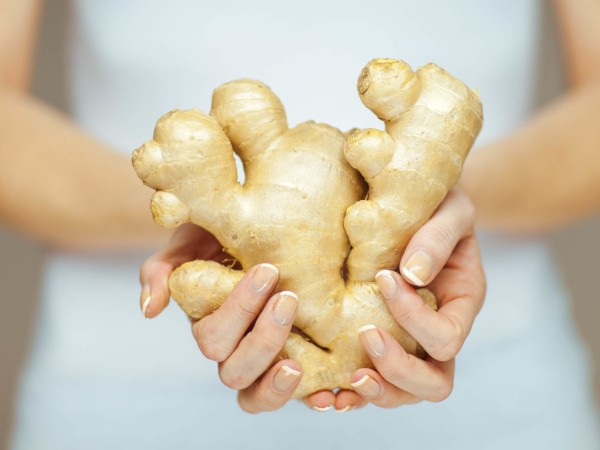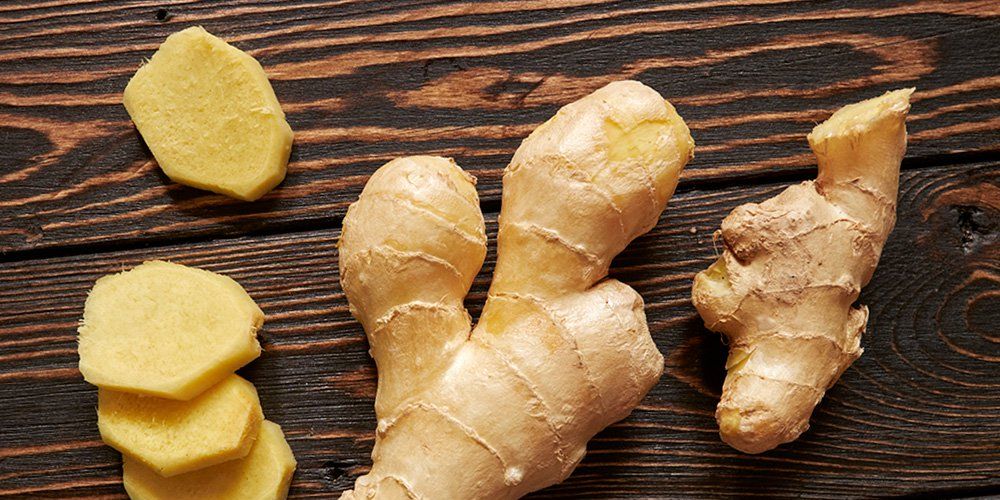3 reasons why you should eat more ginger
Ginger (Latin Zingiber officinale ) is more than a spice. In traditional Chinese medicine, the bulbous root has been used for medicinal purposes for over 2000 years. In addition to essential oils, ginger is primarily characterized by its pungent substances – the gingerols and shogaole . The former are mainly found in fresh ginger. During storage or when heated, these are then transformed into the significantly hotter shogaols.
In 2018, Zingiber officinale was even voted Medicinal Plant of the Year due to its wide range of medicinal properties. In today’s blog post you will find out how the spice is good for your health.
Ginger ensures a healthy intestine
The pungent substances are primarily responsible for the digestive effect. They stimulate the production of saliva and gastric juice, which speeds up digestion. Hildegard von Bingen already used the stimulating effect of ginger on the gastrointestinal tract in the Middle Ages. Taken before a meal (e.g. in the form of tea or our deaerator capsules ), ginger helps, for example, to reduce bloating. The effect on nausea has also been well studied. Studies show that the tuber is as effective as synthetic medicines for travel sickness. Ginger is also anti-inflammatory and has a positive effect on inflammatory bowel diseases. Regular ginger consumption is also said to have a positive effect on the intestinal flora, as the growth of certain viruses and bacteria is inhibited.
Ginger supports your regeneration after training
A review published in 2011 took up the studies analgesic effect of ginger under the microscope. The data from eight examinations came to a clear result in six cases: ginger relieves pain. The anti-inflammatory properties are probably responsible for the analgesic effect. Experts assume that this is due to an inhibition of prostaglandin formation. Prostaglandins are messenger substances that promote inflammation and play a role in the transmission of pain. Ginger powder came u. a. Successfully used for tooth, menstrual and muscle pain.
According to a study, ginger is also said to accelerate regeneration after strength training and reduce inflammatory reactions after intense cardio training. To prevent muscle soreness, some athletes also rely on external application in the form of wraps or ointments to stimulate blood circulation after training. Several studies also show that ginger protects against oxidative stress. Reactive oxygen species, so-called free radicals, are held responsible for cell aging and many diseases (e.g. cancer and arteriosclerosis). The spice increases the expression of various antioxidant enzymes that render free radicals harmless. Athletes also benefit from this. In their cells there is more oxidative stress due to the increased energy supply.

Incidentally, dried ginger has the highest antioxidant capacity, as the content of hot substances is more than five times higher than fresh.
Protection against cardiovascular and neurodegenerative diseases
Cardiovascular diseases such as heart attacks or strokes are considered the most common cause of death worldwide. To prevent them, typical risk factors – u. a. increased blood lipid levels, high blood pressure and obesity – should be avoided. Consumption of ginger can help here. In studies, the tuber reduced namely blood pressure and improved blood lipid levels. In addition, the pungent substances Shogaole and Gingerole are supposed to get rid of extra pounds by inhibiting fat build-up and promoting fat loss. In order to speak of a clearly proven effect, however, data from human studies are still lacking.
Furthermore, due to its anti-inflammatory properties, ginger is said to have a positive effect on the memory function and could thus be used for treatment and prevention of neurodegenerative diseases such as Alzheimer’s or Parkinson’s. Here, too, there is still a need for further research.




